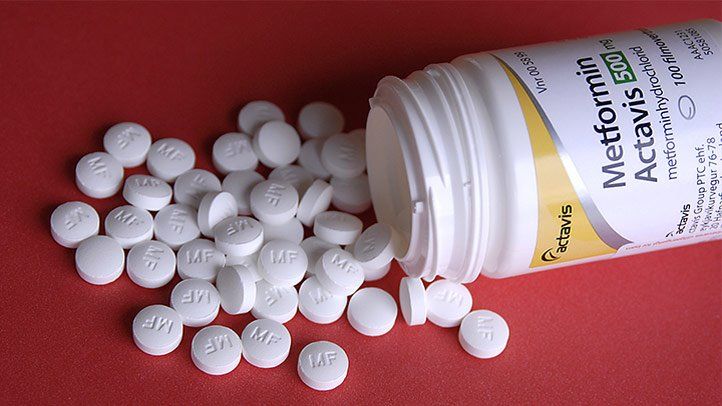Food and medication go hand in hand. They can either enhance the effectiveness of the medication or interact with the medication in a negative way resulting in side effects. Metformin is one drug that can work well with foods and also react badly with certain foods.
Metformin is a drug used to treat type 2 diabetes (a type of diabetes where there is an inability to control blood sugar levels). In this article, you will learn more about the medication metformin, what it does, the type of food you should eat and avoid when on this medication and more.
What is metformin?
This is a prescription drug used to treat people with type 2 diabetes. With type 2 diabetes, the body does not produce enough insulin or resist insulin. Symptoms of type 2 diabetes include; increased thirst, frequent urination, hunger, fatigue and blurred vision. Metformin is prescribed to help people suffering from type 2 diabetes control their blood sugar levels in many ways. Some of which include
- Reducing the level of sugar produced by your liver and
- Increasing your body’s ability to respond to natural insulin production.
This medication is not suitable for people with liver, heart and kidney problems. This is because it can cause a severe and life-threatening condition called lactic acidosis (a type of metabolic acidosis that begins when a person overproduces or underutilizes lactic acid, making the body unable to adjust to changes).
Metformin can be used alone or combined with insulin treatment.
How does metformin work?
Metformin works for people with type 2 diabetes. It cannot be used for people with type 1 diabetes because type 1 diabetics cannot produce insulin from their pancreas. They usually control their blood sugar levels with insulin injections. In addition, metformin is used in diabetes prevention for prediabetes.
It is also used for treating Polycystic Ovary Syndrome (PCOS). This is a condition that affects ovulation and can also increase androgen production. (Androgens are male hormones with the function of facial hair growth and male pattern baldness). PCOS increases the risk of developing obesity, depression, infertility, and type 2 diabetes.
Metformin is sometimes used by healthcare providers in people with the polycystic ovarian syndrome who have fertility issues. The main aim of this medicine is to improve ovulation and chances of conceiving.
Metformin has also been used to help women with PCOS with body weight loss maintenance. This is due to the fact that metformin may help reduce adipose tissue mass.
What food can I take while taking metformin?
Below are some of the foods that can be eaten while taking metformin.
Metformin can be taken with lean protein foods. Foods such as fish, turkey and tofu are all lean proteins making them safe to consume when you are taking metformin.
Consuming foods which moderate amounts of fibre is also recommended. Moderate amounts of fibre can help maintain blood sugar levels. An average intake of fibre is between 25 and 30 grams per day. Make sure to avoid taking foods with lots of fibre.
Foods with healthy fats are also recommended when taking metformin. Healthy fat sources include nuts, olive oil and fish.
Vegetables that are non-starchy are also good to take with metformin. They help slow down your carb metabolism. Broccoli, leafy greens are both examples of non-starchy vegetables.
Another food that you can take with metformin is food that contains complex carbohydrates. Complex carbohydrates come from vegetables, fruits, and whole grains such as brown rice and whole-grain bread. These foods have more fibre. This makes them more difficult for the body to metabolize. This then results in a slow release of glucose into the bloodstream.
What foods to avoid while taking metformin
Here are some foods you should definitely avoid when taking metformin.
Foods that contain high amounts of trans and saturated fats are not good to take while taking metformin. Healthy fats are okay to take but not saturated fats.
Avoid eating foods with too much sodium. While on metformin, it is important to avoid taking food with too much sodium content.
Foods that contain high amounts of fibre is a no-go area. Fibre can absorb certain drugs and lower their concentration in your bloodstream. If you eat large amounts of fibre, your metformin levels may decrease. It is good to keep your fibre intake under 30 grams per day.
Also, avoid eating foods that are simple or refined carbs. They increase your blood sugar levels. Avoid simple carbs such as soda, candy, and sweet desserts. Refined carbs like pasta, white rice and white bread should also be avoided.
Too much intake of alcohol is not recommended while on metformin. Large amounts of alcohol increase your risk of developing low blood sugar and lactic acidosis. Alcohol also prevents the liver from storing and releasing glucose. It is important to note that you should not take alcohol on an empty stomach.
Other things to avoid while taking metformin
Oral contraceptives and blood pressure medication, such as amlodipine (Norvasc) are other things you should avoid taking while on metformin.
The takeaway from this article
Metformin is a drug used for people with type 2 diabetes. Taking this drug with food can help increase its efficiency. However, there are certain foods that should be avoided while on metformin.
Alcohol, foods with high fibre and sodium content are some of the foods you should avoid when you are on metformin medication.








Leave a Comment